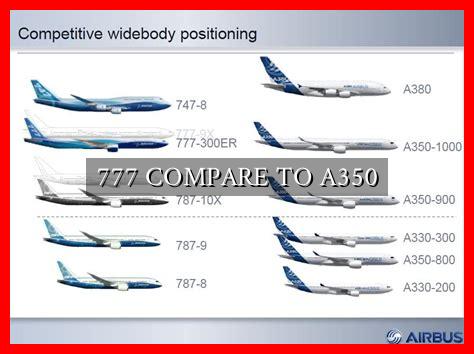-
Table of Contents
Comparing Boeing 777 to Airbus A350: A Detailed Analysis
When it comes to long-haul flights, two aircraft that often come to mind are the Boeing 777 and the Airbus A350. Both are popular choices among airlines for their efficiency, comfort, and range. In this article, we will compare these two aircraft in terms of performance, passenger experience, and environmental impact to help you understand the differences between them.
Performance
The Boeing 777 is a long-range, wide-body twin-engine jet airliner that has been in service since the mid-1990s. It is known for its reliability and versatility, with several variants available to suit different airline needs. The 777 has a maximum range of around 8,555 nautical miles and can carry between 300 to 550 passengers, depending on the configuration.
On the other hand, the Airbus A350 is a newer aircraft that entered service in 2015.
. It is also a long-range, wide-body twin-engine jet airliner, designed to compete with the Boeing 777. The A350 has a maximum range of around 9,700 nautical miles and can carry between 250 to 440 passengers.
- The Boeing 777 has a longer track record of proven performance and reliability.
- The Airbus A350 offers slightly better range and fuel efficiency compared to the 777.
Passenger Experience
Both the Boeing 777 and the Airbus A350 are designed with passenger comfort in mind, offering spacious cabins, larger windows, and advanced entertainment systems. However, there are some differences in terms of cabin layout and amenities.
The Boeing 777 typically features a 3-4-3 seating configuration in economy class, while the Airbus A350 offers a more spacious 3-3-3 layout. This means that passengers on the A350 have more room to move around and are less likely to feel cramped during long flights.
- The Airbus A350 provides a more comfortable seating arrangement for passengers compared to the Boeing 777.
- Both aircraft offer state-of-the-art entertainment systems and in-flight amenities to enhance the passenger experience.
Environmental Impact
With increasing concerns about climate change and carbon emissions, airlines are looking for more fuel-efficient and environmentally friendly aircraft. Both the Boeing 777 and the Airbus A350 have made significant strides in this area, with advanced aerodynamics and lightweight materials to reduce fuel consumption.
According to a study by the International Council on Clean Transportation, the Airbus A350 is more fuel-efficient than the Boeing 777, emitting fewer greenhouse gases per passenger-kilometer flown. This makes the A350 a more environmentally friendly option for airlines looking to reduce their carbon footprint.
- The Airbus A350 has a lower environmental impact compared to the Boeing 777, thanks to its fuel-efficient design.
- Both aircraft are equipped with advanced technology to minimize emissions and noise pollution.
Summary
In conclusion, both the Boeing 777 and the Airbus A350 are excellent choices for long-haul flights, offering superior performance, passenger comfort, and environmental sustainability. While the Boeing 777 has a proven track record of reliability, the Airbus A350 stands out for its fuel efficiency and environmental impact. Airlines must consider their specific needs and priorities when choosing between these two aircraft models.
For more information on the Boeing 777 and Airbus A350, you can visit the official websites of Boeing and Airbus.





